The other day a friend of mine asked for some advice on blogging. I am far from an expert on the subject 1, but I was honored to be considered someone with insight. I came up with five points.
Get a Writing Suite
A writing suite is different than a word processor or text editor as it adds features like document organization, research management, and document meta-data as first order tools. I find the management features of a writing suite essential for keeping my blogging organized.
My specific recommendation is to pick up Scrivener from Literature and Latte, but there are other suites which will also serve a blogger well. One, in particular, is Ulysses. This latter is Mac and iOS only, but it’s a brilliant piece of software. I prefer Scrivener’s setup, but have nothing bad to say about those who prefer Ulysses.
Because writing suites are Swiss army knives, filled with a myriad tools which form a different paradigm for writing, I also also recommend new users watch the tutorials in order to learn how to use it. Every major writing suite should have tutorials and howto’s up on the web somewhere. These are worth the time to take in 2.
Write for the Web
My second recommendation is to learn how to write in multimarkdown. This plain text markup handles both document structure and character formatting. This write up can either be pasted into a blog’s online editor 3 or converted to HTML and pasted in 4.
Why write this way? Because writing in a plain text format strips out any cruft which might be attached to text copied from a word processor 5, allowing a blog’s style sheet to control how text looks. One could also write in the rich text side of the blog editor itself, but I’ve always found it to be a less than stellar experience.
Structure, Structure, Structure
In Scrivener, I create a separate project for each calendar year. I then add a folder for each month, into which my individual blog posts are added as separate documents. These entries are titled with the format “Date – Blog Title,” which helps create a visual calendar of my blogging for any particular month. Long series, such as my Fiction Tuesday novels, have their own projects. But I’ll insert placeholder documents into my main project to remind me of what I blogged on a particular day.
I also create a “Future Ideas” folder outside the “Draft” folder of my main project. In Future Ideas I create new documents whenever I have new idea I find I want to ponder. When these documents are created I utilize Scrivener’s synopsis feature to jot down my original thoughts on the topic. I then spend time adding and editing content, until I feel it’s ready for publishing. Documents may reside for weeks or months in Future Ideas before they are brought into one of my “live” folders.
It’s all about the joy
My advice for anyone looking to begin a blog is to write about what brings them joy, and let the chips fall where they may. Writing to cater to what people want may bring in more readership, but it also contributes to burn out 6 My blog will never become well-known, but I love writing for it because I can jump between a crazy amount of subjects in the course of a week. Fiction, photography, “how to’s,” theology, and politics are all regular features on Painfully Hopeful — but only Fiction has a set day. Maybe some of my political or theological posts turn off people who are only interested in my fiction or photography 7, but there’s enough variety to keep people who aren’t interested in a particular topic coming back when their interest is piqued once more 8.
For the Spiritually Inclined
I treat my blogging as a spiritual discipline. I practice it as part of my growth and formation into Christ’s image.
The most immediate impact this understanding has is on my tone. I have no problem being direct, nor do I struggle communicating matters which deal with my faith. I also enjoy poking fun at myself 9. But I do my absolute best not mock or attack others. I will challenge ideas, and I will point out things I feel are harmful, but I strive to do so from a position of weakness. The more I write the more the Cross becomes my filter. I am in search of beautiful things, and I find neither animosity nor |Puritanism| beautiful.
Embracing blogging as a spiritual discipline is also freeing. Because Painfully Hopeful is a tool, rather than my master, I don’t feel it’s presence looming over my psyche each and every day, ready to beat me into submission should I fail in my pursuits. I began daily blogging as a challenge to write every day for one year, and it was fun 10. But since that year I’ll skip a day every now and again and not lose much sleep over it.
- I need to write a series on “My Life as a C-Level Blogger.” ↩
- I’d have never figured out how to compile from Scrivener without them. ↩
- But only in “code” or “text” mode! ↩
- Again, only in “code” or “text” mode. This is handy for blogging platforms like Squarespace which accept Markdown, but not the extension Multimarkdown. ↩
- That’s right, Microsoft Word, I’m looking at you. ↩
- Much as with pastors who try to cater their pursuits to appeal to “good givers.” ↩
- And vice versa. ↩
- And I thank all of you. ↩
- I take the Gospel very seriously. I can’t do the same with myself because I live in my head and know who I am. ↩
- And one of the only New Year’s resolutions I’ve ever kept. ↩

[ Smiles ] I love your approach to blogging. You are very organized!